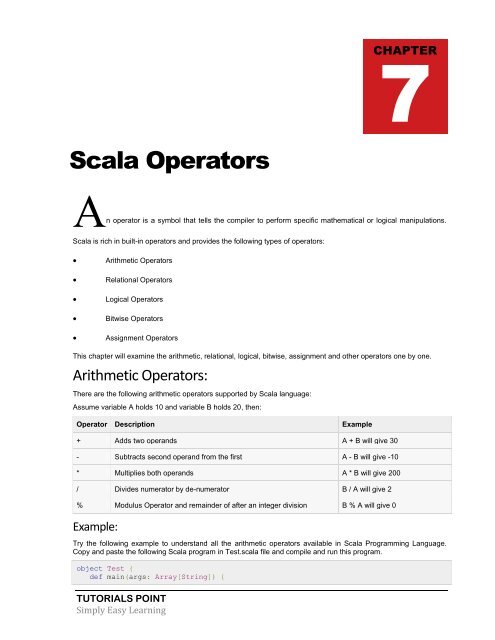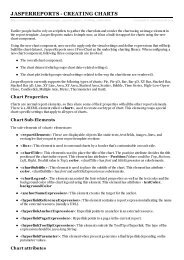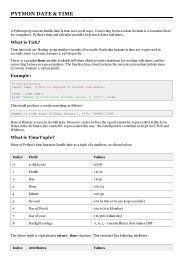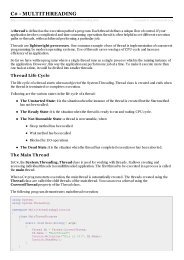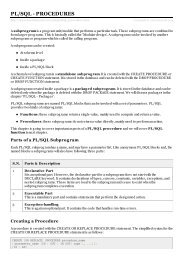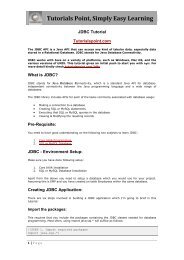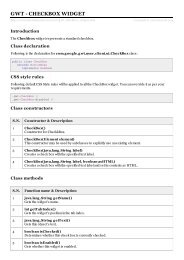Download Scala Tutorial (PDF Version) - Tutorials Point
Download Scala Tutorial (PDF Version) - Tutorials Point
Download Scala Tutorial (PDF Version) - Tutorials Point
You also want an ePaper? Increase the reach of your titles
YUMPU automatically turns print PDFs into web optimized ePapers that Google loves.
CHAPTER<br />
7<br />
<strong>Scala</strong> Operators<br />
An operator is a symbol that tells the compiler to perform specific mathematical or logical manipulations.<br />
<strong>Scala</strong> is rich in built-in operators and provides the following types of operators:<br />
<br />
<br />
<br />
<br />
<br />
Arithmetic Operators<br />
Relational Operators<br />
Logical Operators<br />
Bitwise Operators<br />
Assignment Operators<br />
This chapter will examine the arithmetic, relational, logical, bitwise, assignment and other operators one by one.<br />
Arithmetic Operators:<br />
There are the following arithmetic operators supported by <strong>Scala</strong> language:<br />
Assume variable A holds 10 and variable B holds 20, then:<br />
Operator Description<br />
Example<br />
+ Adds two operands A + B will give 30<br />
- Subtracts second operand from the first A - B will give -10<br />
* Multiplies both operands A * B will give 200<br />
/ Divides numerator by de-numerator B / A will give 2<br />
% Modulus Operator and remainder of after an integer division B % A will give 0<br />
Example:<br />
Try the following example to understand all the arithmetic operators available in <strong>Scala</strong> Programming Language.<br />
Copy and paste the following <strong>Scala</strong> program in Test.scala file and compile and run this program.<br />
object Test {<br />
def main(args: Array[String]) {<br />
TUTORIALS POINT<br />
Simply Easy Learning


